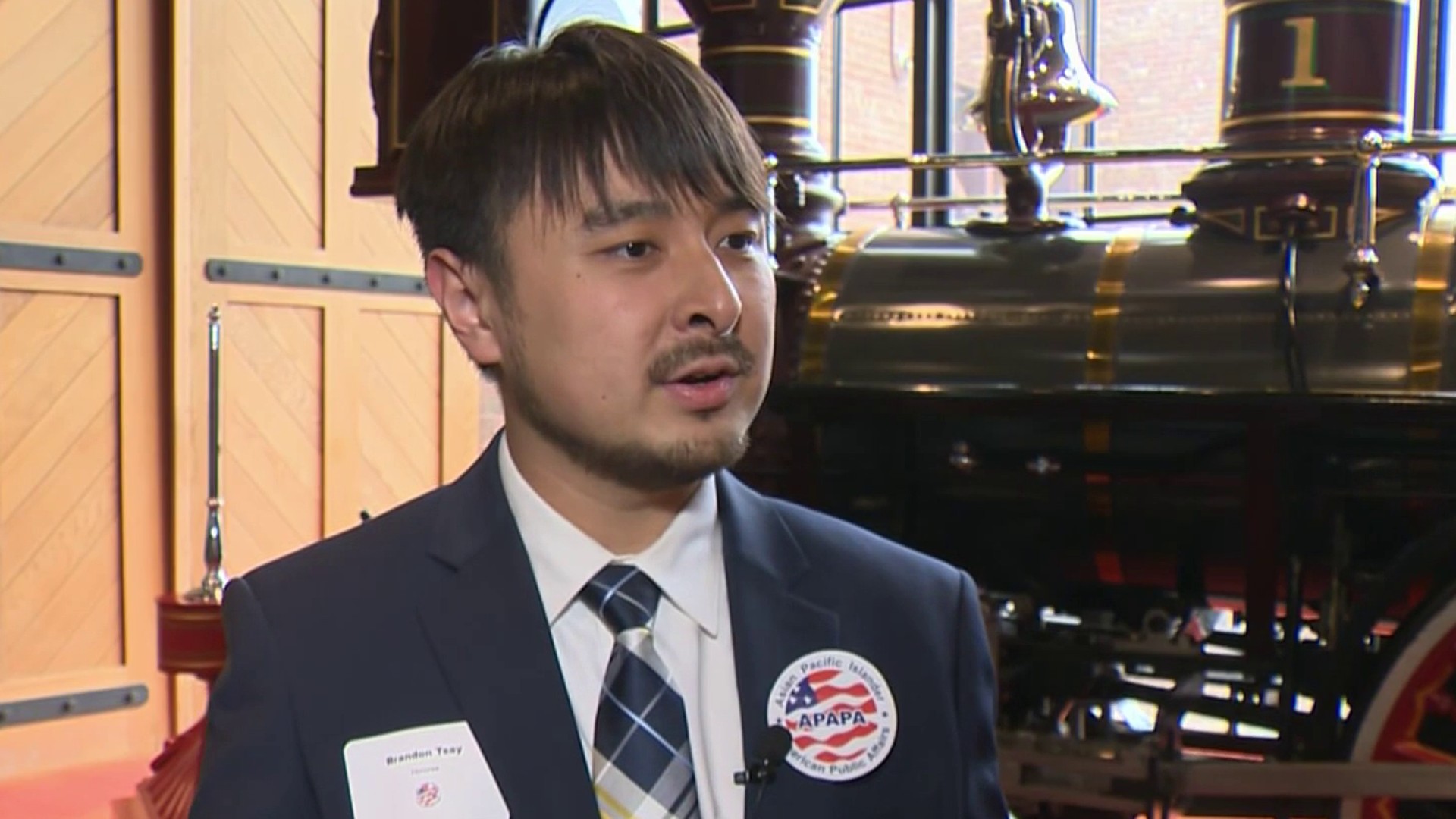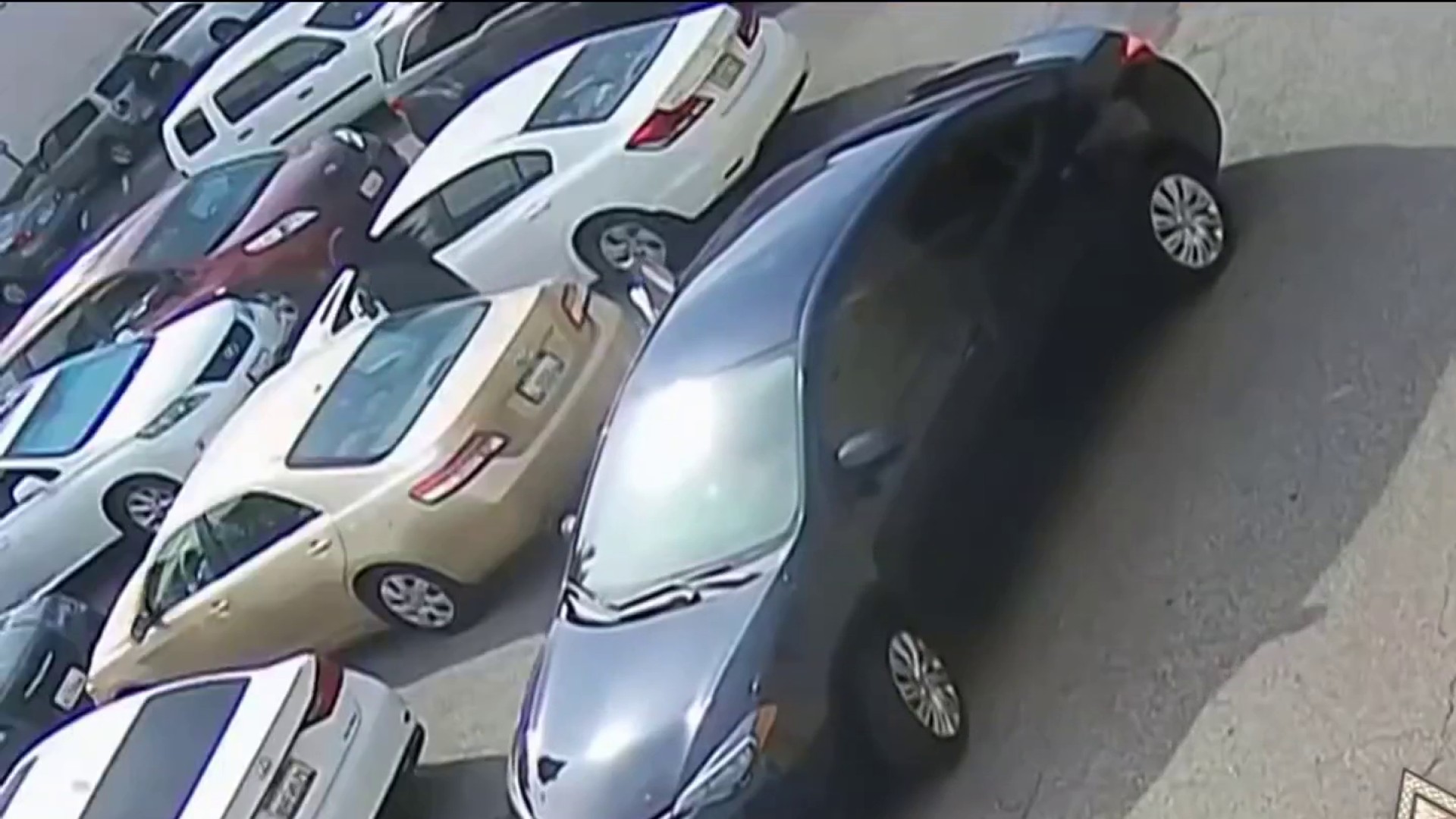As video after video turned up showing elderly Asians in the Bay Area being belted with chairs, punched, randomly stabbed or flung to the ground, Hudson Liao became more and more incensed. In his mind, a moral line had been breached.
“We didn’t know what to do with all these emotions,” said Liao. “Being pissed, sad, all of it at the same time.”
Liao and his friends would gather together in their outrage, hoisting beers and strategizing what they could do to help. Finally, they landed on the formation of a new nonprofit group called Asians Are Strong.
The group’s first effort was to stage a pair of rallies in San Francisco, denouncing the attacks and offering self-defense demonstrations in Civic Center Plaza. But members of the group, which include a restauranteur, a tech CEO and a financial risk manager, felt they needed to do more to empower seniors. And so, Asians Are Strong self-defense classes at Chinatown’s YMCA were born.
Get a weekly recap of the latest San Francisco Bay Area housing news. Sign up for NBC Bay Area’s Housing Deconstructed newsletter.
“I’m born and raised in San Francisco,” said Liao, who leads the classes. “We’ve dealt with racism, we’ve dealt with this stuff. Racism is not new. What was new was the attacks on our seniors and our women.”
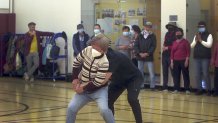
Twice a month, Liao and his fellow group members slip on navy-colored T-shirts emblazoned with the Asians Are Strong logo and lead a couple dozen Asian seniors through a class aimed at helping them fend off attackers.
Liao begins each class instructing the group to scream “Stop!”– the first line of defense in an attack. Liao said the scream is not only intended to startle an attacker, but it’s also aimed at activating the seniors in a different way.
“So we’re getting them used to using their voice,” Liao said. “We start every class with that to break the years of generational training to really start using the voice cause it goes the farthest.”
Liao teaches his eager pupils, who range in age from 50s to 80s, how to break the grip of an assailant who has grabbed them from behind how to block a punch or deliver a kick to the groin. Despite the heavy nature of the material, the sound of laughter reflects across the sleek floor boards of the gym’s basketball court, creating a somewhat joyful din.
“It’s very important to really approach it in a more open, joyful way,” said Zeien Cheung, the group’s head of operations. “Empowering them in a positive kind of vibe.”
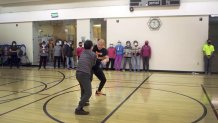
Although some of the group had martial arts experience, none had ever taught self-defense. Liao said he wasn’t even aware of any other self-defense classes aimed at seniors. Liao and members of his group often gathered outside of classes to arrange the curriculum for future lessons.
“When all these attacks were coming up, we were looking,” Liao said. "What are self-defense tools that we could teach people? What would we do?”
Liao said the seniors taking his classes routinely share stories of attacks – getting shoved, punched or harassed. On a recent day, one of the seniors told Liao she’d recently been pushed by a stranger.
During that class, a TV crew from the Netherlands was on hand filming for a report on the rise of Asian attacks in the United States.
“It’s happening to our community every single day,” Liao said. “That’s trauma that is not recorded and is not talked about every single day.”
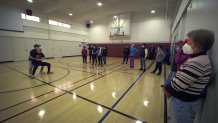
Siaoyin Cai, a senior who lives in Chinatown, said her newly-acquired skills for protecting herself have brought her some reassurance as she walks to markets and stores around the neighborhood.
“Coming to this class has given me self-confidence, given me the skills to protect myself and a sense of safety," said Cai, through a translator.
The intangible of the program is that it’s also become an inter-generational connection between the elderly pupils and the 30-something instructors who are doing the training.
“During this pandemic a lot of people got very isolated by themselves,” said Cheung. “And with these classes is kind of bridging this generational gap, that these elders feel they’re not alone. We’re here for them.”
Liao called the classes the “silver lining” of the attacks, giving him the chance to bond with older generations from his old neighborhood. And yet, the necessity of seniors having to take self-defense classes at all, carries its own heartbreak and continually fills him with rage and frustration.
“It comes from a lot of guilt too to be honest,” he said, his voice breaking and his eyes beginning to tear. “I felt like I should’ve done more.”
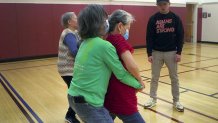
For now, Liao and his group are at least fulfilled by the fact they’re helping equip seniors with skills to potentially protect themselves.
On a recent day, Liao sparred with an elderly woman in a knitted sweater vest, who screamed and broke from Liao’s grip, inspiring applause from the rest of the group.
“There’s a problem. It sucks there’s a problem,” Liao said after the class. “But we’re going to find a solution and make it better.”

